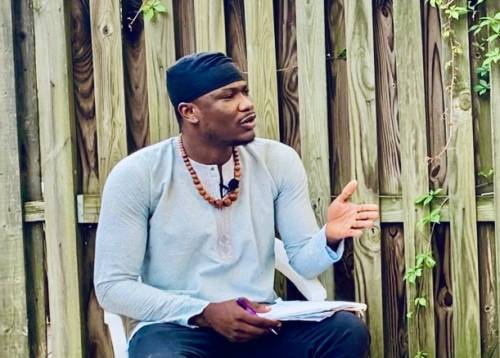The Nigerian government’s recent announcement of the suspension of access to Twitter in the country on the claim of protecting the latter’s ‘corporate existence’ is nothing but an attack on commonsense and hardworking Nigerians. If the Muhammadu Buhari regime thinks this is in any way a punishment for Twitter, in response to the media company’s censorship of the President’s tweets on genocide, it would be committing a self-defeating blunder. Apart from the suspension being an outright violation of free speech and a purely fascist attempt to control the Nigerian public, the policy would negatively affect hundreds of thousands of Nigerian businesses. Moreover, banning Twitter would neither bring down the disgraceful Naira to Dollar exchange rate nor end the country’s many challenges. Therefore, the regime must properly place its priorities.
The Buhari regime is already guilty of a gross violation of human rights, particularly the right to free speech. It’s no news that public censorship in today’s Nigeria is almost close to the obtainable during the Buhari-Idiagbon military regime of 1983 to 1985. One couldn’t have expected less from a presidency that sanctioned media houses for covering the 2020 #EndSARS protests on the grounds of supposed ‘anti-government’ bias. It is why the Twitter ban should not meet Nigerians as unexpected, especially since the government has sufficiently demonstrated its lack of appetite for criticism in the recent past.
It is also not enough to say that the Twitter ban violates sections 22 and 29 of the 1999 Constitution. But it is more of an assault on the constitution as a whole, considering all other rights are useless without free speech. Nonetheless, the regime must understand that a Twitter blackout means many small businesses will suffer, if not forced to close. The Ministry of Information and Culture would be well aware that young Nigerian Twitter users have found a market in the social media platform. If Buhari is not helping young Nigerians through pro-entrepreneurship policies, he shouldn’t render their small endeavors redundant simply because he feels offended by Twitter’s censorship.
Instead of the pointless reprisal policy, which is poised to hurt innocent Nigerians and not Twitter, the Buhari regime should put its energy where they are useful. Nigeria is engulfing in unfathomable chaos: schools are not safe; neither are places of worship secured; the military is in crisis; families and corporate bodies are reeling from the effects of Covid-19, and the economy is in shambles. Yet, nothing appears to be of more significant concern to the government at this moment other than to protect the President’s Twitter account.
The Buhari regime’s inadequate response to these challenges has already made it unpopular among Nigerians. Some would even argue that the regime is nothing more than a dictatorship. If the President is interested in saving face, he should start that process with the millions of Nigerians who voted him into office. Buhari should not be primarily concerned about how he is seen by the rest of the world, which, of course, is the reason for the Twitter reprisal policy.
Nigerians need reassurance. And this is beyond mere once-in-a-while addresses by the President. The people need reassurance that this republic will hold amid the unprecedented chaos. Suppose people are criticizing the President or promoting secessionist propaganda on Twitter. In that case, such actions should be seen in the context of what is going on in the country, i.e., insecurity, economic crisis, etc., and not outrightly as an agenda to kill Nigeria’s ‘corporate existence’. For this reason, the Presidency should instead pursue means through which it can rebuild the public’s trust.
However, if the regime continues to disregard human rights and not take the pain of Nigerians seriously, it would be justifying the ‘dictatorship’ tag being promoted in the media and across the world. Democracy relies on mutual respect in service, i.e., the government acting to protect lives and properties and the citizens providing their government with support and compliance. Nigerians have more than fulfilled their democratic duty. It is time for the Buhari regime to play its part properly and stop this dictatorial attitude.
Ibrahim B. Anoba is an advisory board member at the Initiative for African Trade and Prosperity. He is also managing editor at African Liberty and fellow at the Atlas Network’s Center for African Prosperity.

